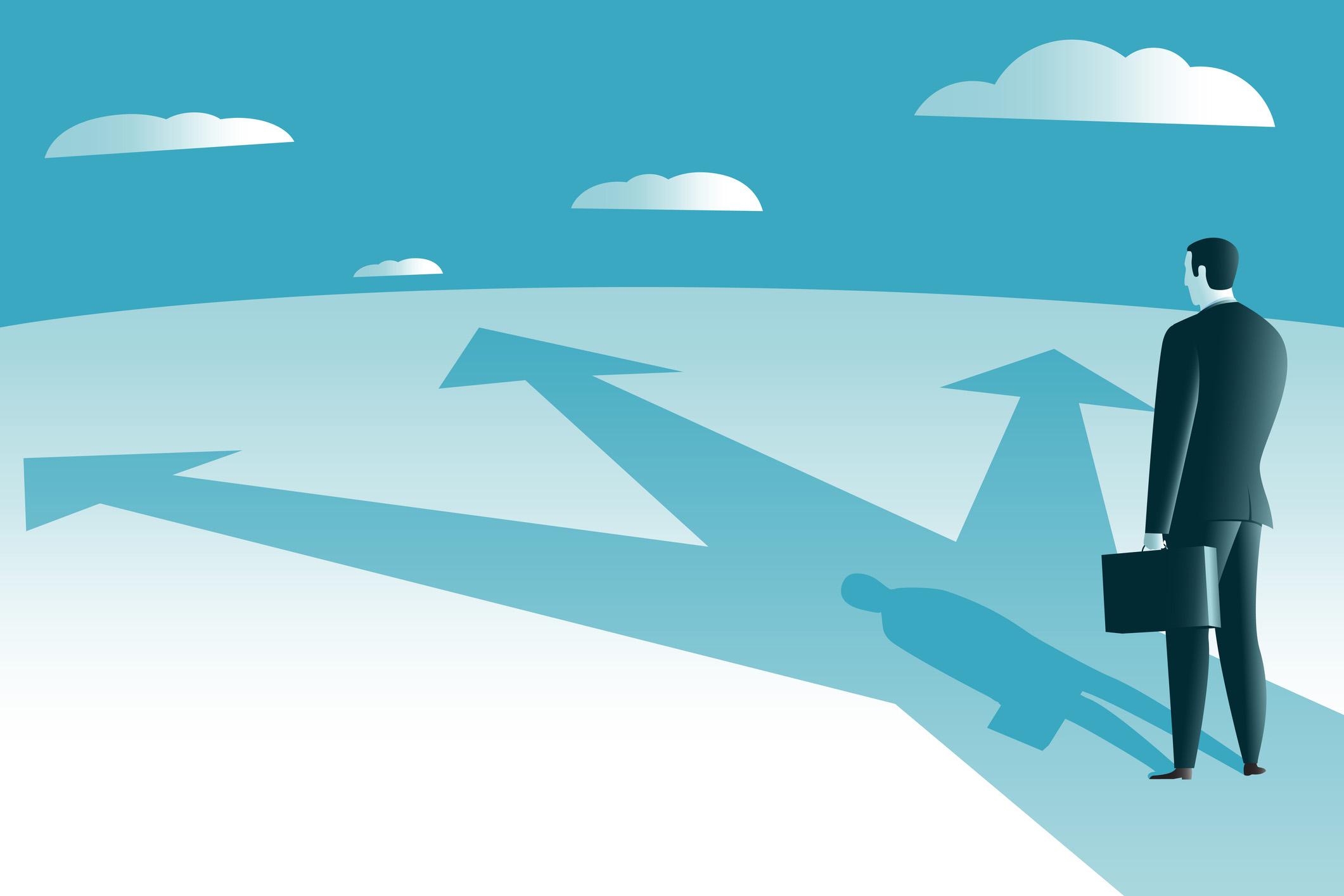
The tide of popular opinion seems to have turned against multitasking. Recent articles scoff at the notion that people could satisfactorily complete more than one activity at a time, labelling it a “myth”, a “fallacy”, even tantamount to adultery. This purist pushback in the press mirrors common resentment among professionals at the expectation to adjust to the constant flux that digital technology has brought to daily life.
Opposition to multitasking is largely based on the assumption that the concentration and self-discipline required to get things done are limited resources. The more tasks that compete for your precious attention, the less effective you can be at any one task. In the field of psychological science, there is a widely cited theory to this effect. Known as “ego depletion”, it argues that exercising self-control in one instance depletes a limited willpower resource which makes us more vulnerable to temptation later on. Thus, if you persist during a long and boring meeting during work, you are more likely to skirt traffic rules on the drive home or finish your dinner with a dessert.
In the past few years, however, much of the underlying evidence for ego depletion has been questioned by researchers claiming cherry-picked results and journal editors’ biases helped the theory gain traction. At the same time, new studies emerged suggesting that the brain’s capacity may be greater than previously believed, provided we tap it at the right time. Drawing on neuropsychological insights about the systemic nature of reward-seeking and self-control, they imply that while the brain is firing on all cylinders, there is nearly inexhaustible potential for productivity. However, if one fails to seize the moment, subsequent efforts at self-control may yield diminishing returns.
In the above analysis, ego depletion, if it exists at all, is a by-product of bad timing. Multitasking would therefore be the wisest course, as it makes the most of the windows of opportunity when our willpower is strongest.
Control your bladder, control your life
With Mirjam A. Tuk (of Imperial College London and Erasmus University) and Kuangjie Zhang (of Nanyang Technological University), I launched 18 experiments designed to test whether self-control is indeed transferrable between tasks, which evolved into a recent Journal of Experimental Psychology article. Our research project has perhaps a more amusing history than most: It builds on Tuk’s 2011 study – the winner of an Ig Nobel prize for research achievements “that first makes people laugh, and then makes them think” and later mentioned on the television comedy The Big Bang Theory – that found that people fighting the urgent need to empty their bladder made smarter impulse-control decisions generally. Tuk hypothesized that controlling one’s bladder activates an area of the brain called the inhibitory network, which is linked to cognitive control and response inhibition.
Simultaneous self-control
For the follow-on study, we wanted to see whether a simple verbal prompt could replicate the effects of having a full bladder. We retraced the steps of past ego depletion experimenters, but in addition to asking subjects to attempt two self-control tasks in sequence, we deployed them concurrently. For example, in one experiment we asked subjects to watch a muted video of a woman being interviewed. Some were asked to avert their eyes from the subtitles; others were not. Each participant had a bowl of Pringles chips to snack on as they watched. Contrary to the idea of willpower as a limited resource, viewers who had been given the instruction ate fewer chips than those who watched freely.
In another experiment, participants were asked to read and respond to a hypothetical scenario where a character was forced to choose between a long-anticipated evening of fun and the tedium of helping parents with a tax emergency. Banner ads flitted across the screen as the participants were reading; those who were told not to look at the ads were more likely to choose the responsible course of action.
Since we tested for sequential as well as simultaneous self-control, we found that inhibition spillover and ego depletion are not necessarily mutually exclusive. When self-control tasks were assigned with an interval between them, subjects displayed a noticeable decrease in willpower between Tasks 1 and 2. But ego depletion presented to a lesser extent than did inhibition spillover.
Instead of cherry-picking individual studies with affirming results, we display all studies conducted within the realm of this project in one internal meta-analysis and consistently find similar results across all 18 experiments. Thus, we concluded that exercising self-restraint in one area improves performance on other tasks requiring self-control occurring at the same time. Apart from shedding new light on the dynamic nature of self-control, our work has been lauded for its openness and data-handling practices.
Shutting out distractions
A certain amount of tunnel vision is necessary to get things done nowadays, with incessantly pinging phones and scrolling social-media timelines providing powerful distractions. The line between true multitasking – in which being “in the zone” helps you make better decisions across the board – and spreading your attention too thin can be blurry. Luckily, there are ways to harness self-control spillover without potentially short-changing important tasks.
Next time you need a boost in concentration, try listening to music at a very low volume as you work. The activity of mentally cancelling out the sound should be enough to tap the brain’s enormous reserves of willpower and focus.
While no one can stay “in the zone” indefinitely, our research implies that with careful planning, you may be able to prolong these periods of heightened productivity. In sum, we show that the brain seems more capable of negotiating the various self-control challenges of contemporary life than previously assumed. That means we may have less to fear from digital technology and its unceasing demands on our attention than we thought.
Benjamin Kessler, Asia Editor & Digital Manager, contributed to this article.
Steven Sweldens has been affiliated with INSEAD since 2009, as an Assistant Professor of Marketing (2009-2015) and as a Distinguished Research Fellow (2015-present). Since 2014, Steven is an Associate Professor of Marketing at RSM Erasmus University.
-
View Comments
(7) -
Anonymous User
In error prevention classes, we teach that multi-tasking is absolutely prohibited, and reason for termination. A good example was at the recent Oscar's.
Anonymous User
Steven,
Very nicely written, but...What happened to the belief of brain researchers have concluded that you can only have one thing going on in the brain regardless of flow, rhythm, or cadence. You are sup[posed to be able to "do" 2 things at once only if 1 of them is "mindless. I think that industrial engineers would probably agree.
Anonymous User
Hi Steve, loved the read. Very Well-articulated. I agree that when we are in the zone, we move the needle (move multiple needles).
I want to add that ‘’Multi-tasking while in the Zone and being productive in our varied priorities’’ is different from ‘’getting distracted constantly from varied digital technologies’’. The thwarting attribute of digital technology is that it allows for the indulgence or satisfaction of one’s own desire – It is so addictive, allowing ourselves to be constantly distracted, that we deny ourselves getting into the zone. We lose out on getting anything done with intensity, leave alone ‘’multi-taking’’.
We develop a tendency of allowing ourselves to get distracted - There is an uncontrollable urge. The secret is in slowing down. Practicing non-doing – being in solitude, silencing our mind could help in slowing down the train of thoughts, judgments, Actions, urges etc. It is in this stillness, that we develop better awareness, that is when we critically think around our critical priorities. As you well sighted, in this better awareness, we embrace better choices...like bring in the music at low volume, we start muting conversations, we put our mobiles in the locker rooms during the workouts, we start time-boxing distractions, we start consuming only those that can be acted upon.
Anonymous User
Hi Steven,
Very interesting finding! In fact, in the "Antifragility" book by Nicholas Taleb, similar findings are reported. He uses the example to speak softly in a lecture when you want your students to remember better. Overcompensation in one domain helps you in another.
Best regards,
Auke Hunneman
Anonymous User
Thanks Auke, for the reference. The antifragility idea is certainly related, but also different from our findings. Taleb's main argument centres on the fact that it is a good idea to expose oneself to environmental stressors or self-control requiring situations, in order to gain better ability to deal with them in the future (become less fragile). Our findings do apply to the example you cite, but in this case more from the students' perspective. Students who are listening to a lecturer speaking softly will need to exercise self-control to understand well what s/he's saying. Exercising such self-control, in turn, will automatically boost the students' ability to stay focused and withstand unrelated interferences or calls on their attention.
Anonymous User
Thanks for your answer Steven.
Even though the basic message of the antifragility book is exactly like you mention, he takes the students perspective in Chapter 2: "Mental effort moves us into higher gear, activating more vigorous and more analytical brain machinery." (Chapter 2).
-
Leave a Comment





Anonymous User
09/03/2017, 11.29 pm
This topic seems to stir more thoughts in readers, like me. Neuroscience, now demonstrate single-tasking is the best for productivity! Others disagree? In areas like nuclear power monitoring, air traffic communications, painting and sculpting, singing and precise surgeries, how multi-tasking is possible. When asked people have stated that singularity of their thought as a responsible agent. the next thread is should we force our children into multi-tasking in education? Higher productivity = multi tasking ?